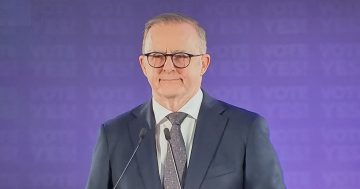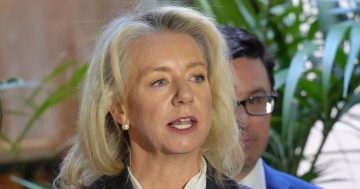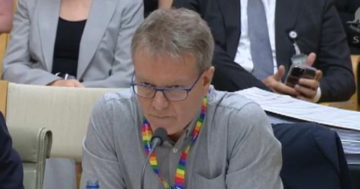
University graduates are not rushing to join DFAT. Photo: File.
Graduates aren’t feeling the attraction of working in international affairs like they once did, if applications for public sector intakes are anything to go by.
Applicant numbers for the graduate intake at the Department of Foreign Affairs and Trade dropped by more than a quarter for this year’s program.
Normally receiving well above 2000 applications each year, this year’s program fell to just 1484, down from 2052 for the 2022 program.
In 2020, application numbers for the department’s graduate program reached 2807.
While there is no official explanation as to why numbers are falling for a department that is usually highly sought after by graduates seeking a career in diplomacy and the public service, there are a few clues from what has happened in the past year.
The pandemic is being blamed for many of the peaks and troughs of graduate intake applications across all APS departments in recent years.
But there are some peculiarities specific to DFAT.
Last year, the entire DFAT graduate intake was sent to the passport office to help tackle the massive backlog of passport renewal applications – probably not what the graduates had in mind when applying for the program.
Also, in 2022, the DFAT graduate program was reduced to just one year, resulting in fewer rotations and even fewer possibilities for a stint overseas.
Then there were problems getting security clearances for successful applicants sorted in time.
And just to top it all off, there was a three-month delay in advertising for this year’s program.
It all adds up to a graduate program losing its appeal among bright and ambitious university graduates.
Delays in security vetting have resulted in a number who were initially provisionally accepted into this year’s program having their placement offers withdrawn.
An email sent to a ‘small number’ of candidates explained why they were ultimately rejected.
“Unfortunately, due to the deadline to security clear the graduate cohort your clearance process has been ceased,” the email reads.
“This is not a detrimental outcome, as there has been no decision made regarding your suitability to hold a security clearance.
“Due to the time constraints we are unable to progress your clearance, however, this does not stop you from reapplying for next year’s graduate program or other APS graduate programs.”
The Community and Public Sector Union wrote to DFAT last month, concerned about the handling of the graduate applications.
While acknowledging that original offers made were contingent on successful security clearances, the union blames the department for not ensuring the process was better handled – particularly when some candidates had declined subsequent offers of employment.
“Under the circumstances, the CPSU is of the view that DFAT should have made individual contact with the potential employees and considered providing options to enable participation in the 2023 graduate program through an extension to the start date or exploring other options to assist these individuals,” the CPSU letter said.
DFAT has acknowledged the disappointment of rejected candidates but insists it followed all procedures correctly.
As the numbers prove, however, applications for the DFAT graduate intake are clearly declining.





















